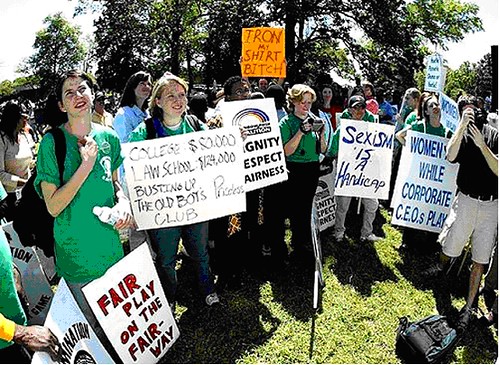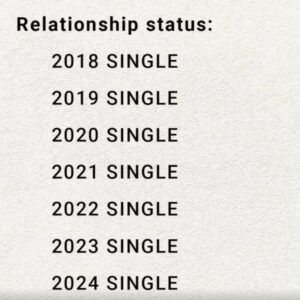
Contents
- 1 What Women Are Fighting for in 2025
- 2 1. Reproductive Rights Are Still Under Siege
- 3 2. The Surge of Digital Misogyny
- 4 3. Intersectional Feminism Takes Center Stage
- 5 4. The Gender Pay Gap Won’t Die
- 6 5. Gender-Based Violence Is Still a Crisis
- 7 6. Trans-Inclusive Feminism Is the Standard
- 8 7. The Climate Crisis is a Feminist Issue
- 9 8. Feminism Is Facing a Backlash
- 10 9. Feminism in the Global South Is Leading the Way
- 11 10. Feminism Is About Power—Who Has It and Who Doesn’t
- 12 Final Thoughts: Why Feminism Still Matters in 2025
- 13 Related Articles
What Women Are Fighting for in 2025
In 2025, feminism is far from finished. It has evolved, diversified, and—let’s be real—gotten bolder. But despite decades of progress, gender equality remains elusive across many sectors. From reproductive rights and digital safety to the gender pay gap and intersectional inclusion, today’s feminists are juggling a loaded deck.
This post breaks down the top current feminist issues in 2025—what’s changing, what’s not, and why it still matters.
1. Reproductive Rights Are Still Under Siege
Reproductive freedom is supposed to be basic—but try telling that to legislators. Since the reversal of Roe v. Wade, access to abortion and birth control has become patchy in parts of the U.S., with state-level bans and restrictions muddying the waters.
Globally, many women still face barriers to safe reproductive healthcare, especially in under-resourced regions. From maternal mortality rates to restricted contraception, the battle for bodily autonomy is a pressing feminist priority.
Reproductive rights in 2025 are under political and cultural fire, and feminists are demanding not just access—but justice.
2. The Surge of Digital Misogyny
The internet was meant to democratize information. Instead, it’s given misogyny a megaphone. From deepfake porn and incel subcultures to cyberstalking and doxxing, digital misogyny is more pervasive—and insidious—than ever.
Social platforms continue to lag in enforcing protections, and feminists are calling for stronger content moderation policies, privacy laws, and tools to keep women safe online.
Online harassment isn’t just annoying—it’s silencing women, especially those from marginalized communities. Feminism and tech accountability go hand-in-hand in 2025.
3. Intersectional Feminism Takes Center Stage
If your feminism isn’t intersectional, it’s obsolete.
Intersectional feminism—which looks at how race, class, sexuality, disability, and other identities overlap with gender—has moved from academic circles to mainstream feminist thought.
Today’s leading voices are BIPOC, LGBTQ+, disabled, neurodiverse, and working-class feminists fighting on multiple fronts. The goal? Make feminism more inclusive, equitable, and aware of systemic privilege.
In 2025, inclusive feminism is non-negotiable. The future isn’t female—it’s intersectional.
4. The Gender Pay Gap Won’t Die
Here we are, mid-2020s, and the gender pay gap is still hanging around like an unpaid intern.
Globally, women earn roughly 77 cents for every dollar earned by men—and the gap widens further for women of color, disabled women, and mothers. In tech and finance, where salaries can skyrocket, the discrepancy is even starker.
Feminists are fighting for:
- Pay transparency laws
- Equitable parental leave
- Accessible childcare
- Up-skilling programs for women in tech and AI sectors
Equal pay in 2025 isn’t just about fairness. It’s about survival in a rapidly automating job market.
5. Gender-Based Violence Is Still a Crisis
One in three women worldwide experiences gender-based violence in her lifetime. That’s not a stat—it’s a global emergency.
Feminist groups across the globe are:
- Pressuring governments to improve domestic violence laws
- Demanding accountability from law enforcement
- Supporting survivors with mental health services, shelters, and legal aid
Post-pandemic, domestic violence surged. In 2025, it hasn’t eased off. The root causes—patriarchal norms, economic dependence, and cultural silence—still fester.
Ending violence against women is still the frontline of feminism.
6. Trans-Inclusive Feminism Is the Standard
Let’s be crystal clear: Trans women are women. Period.
Feminism in 2025 has a zero-tolerance policy for exclusionary practices that target trans and non-binary individuals. The so-called “gender-critical” movement (aka TERFs) has drawn criticism for undermining the core values of feminism—equality, respect, and dignity.
Feminists are increasingly standing up for:
- Trans healthcare access
- Legal recognition
- Safe spaces for all genders
Modern feminism knows that if one woman is left behind, we all are.
7. The Climate Crisis is a Feminist Issue
Environmental disaster doesn’t discriminate—but its effects do.
Women—especially Indigenous women, single mothers, and those in developing nations—bear the brunt of climate change through displacement, food insecurity, and lack of clean water.
Enter eco-feminism, a growing movement connecting environmental justice with gender equity. Women are at the forefront of climate activism, from grassroots efforts to global policy summits.
In 2025, feminist climate action is no longer niche. It’s essential.
8. Feminism Is Facing a Backlash
For every gain feminism makes, there’s a knee-jerk backlash waiting in the wings.
Today’s anti-feminist movement isn’t just loud—it’s coordinated, slick, and armed with algorithms. Influencers who promote toxic masculinity, mock consent culture, or position feminism as “man-hating” are gaining massive followings—especially among disaffected young men.
The result? A culture war where progress is constantly under attack.
Feminists today are fighting disinformation with education, solidarity, and (when necessary) good old-fashioned fire.
9. Feminism in the Global South Is Leading the Way
Often overlooked in mainstream media, feminist movements in the Global South are redefining what activism looks like.
From Latin American women protesting femicide to Afghan girls demanding education, the fight is more urgent, more dangerous—and more inspiring—than ever.
Feminists in the Global South are:
- Organizing mutual aid networks
- Holding corrupt governments accountable
- Using art, music, and media as resistance
Western feminism? It could learn a thing or two.
10. Feminism Is About Power—Who Has It and Who Doesn’t
Let’s stop sugarcoating it: feminism is about power.
It’s not just about “equality” in the abstract. It’s about redistributing the power to speak, to choose, to live freely, to lead, and yes, to challenge centuries of patriarchal control.
That’s why feminism gets under people’s skin. Because it’s not here to make anyone comfortable—it’s here to make everyone equal.
Final Thoughts: Why Feminism Still Matters in 2025
Feminism today is messier, more diverse, and more intersectional than ever before. And that’s a good thing.
Whether we’re talking about digital harassment, reproductive rights, trans inclusion, or climate change, the issues may evolve—but the heart of feminism remains the same: freedom, dignity, and power for all genders.
If you’re not paying attention, you’re falling behind.





